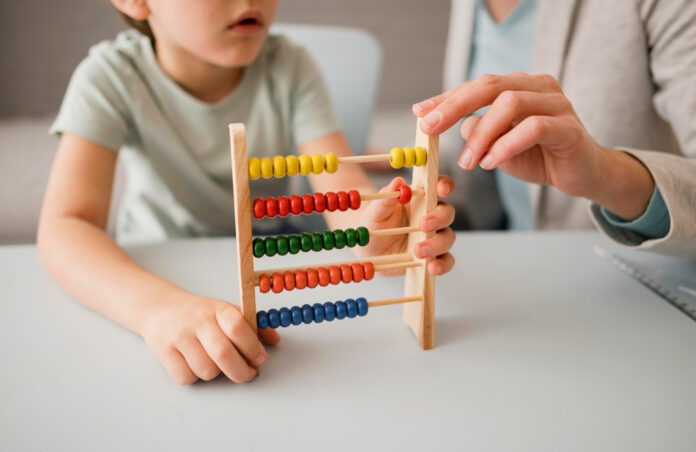As a parent or caregiver of a child with autism, you want to be sure that their daily care schedule is not only therapeutic for them but comfortable and enjoyable, too. Play-based learning checks all the boxes that are important to both you and your child. Finding a facility that offers a full-day ABA program that incorporates plenty of play-based learning can be part of that equation.
Join us as we review play-based learning and applied behavior analysis (ABA) and how an ABA program that focuses on individual and group play can be beneficial.
What Is ABA Therapy?
Applied Behavior Analysis is recognized by leading scientific and professional organizations as one of the most evidenced-based practices that help young people with autism thrive. It’s considered the foremost approach to helping children with autism learn new skills, develop stronger social connections, and help them live a more independent life.
The ABA approach focuses on how behavior works, understanding that behavior is two-fold: a cognitive response that is also affected by environmental factors. Through ABA, we can understand how behavior is learned and how that learning takes place.
Through various methods, including play-based learning, a clinician or therapist will focus on the ABCs of behavior.
- Antecedent. The antecedent precedes the behavior. For instance, a request is given by a caretaker to pick up toys and put them away.
- Behavior. The behavior is the response the child gives to the antecedent. When asked to clean up the toys, does the child put them away, ask for more time to play, or refuse?
- Consequence. The consequence is the result of the behavior. If the toys are put away, the child may receive a reward, like playing with a preferred toy.
Through play-based learning, children make connections between antecedents and consequences and alter their behaviors for their desired outcome.
What Is Play-Based Learning?
Play therapy helps children learn new skills, engage socially, and express themselves in a way that feels natural to them. It encourages self-expression and prepares them for real-life situations. Play is critical for a child’s cognitive development, as well as the development of fine and gross motor skills, communication, and social skills.
How Is Play-Based Learning Used at Autism Centers?
Play-based learning methods can help children develop independence and interpersonal skills in an engaging and fun way.
- Group Play. Incorporated into each of your child’s days should be small group play and large group play. Group play helps young people practice social skills, develop cooperation skills, understand social rules (like taking turns and sharing), and build relationships.
- Independent Play. Through independent play, children gain confidence in themselves and trust that their behaviors lead to expected consequences. Independent play grows a child’s interests and also helps them prepare to be more independent in daily life. Playing independently also increases a child’s independent problem-solving skills.
- Outdoor Play. Look for facilities equipped with indoor or outdoor playgrounds and equipment so children can experience new sensory stimuli and develop gross motor skills in an age-appropriate, safe manner.
Play-based learning should be a primary focus of your child’s day. Children learn best when they’re given a safe, enjoyable environment. Play-based learning is often broken up by one-on-one therapy, as well as music and art therapy.
Final Thoughts: Play-Based Learning in ABA Therapy Sessions
You want the best for the child in your life who has autism, and play-based learning is a positive way to help your child achieve goals. If you’re in DuPage County and searching for the best resources for your child, reach out to the ABA therapy center in Downers Grove. Your child can thrive, and the right team of clinicians and therapists can help them do it.















